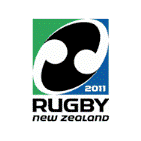 And now, from Auckland New Zealand — head quarters of the Rugby World Cup due to start on September 9 and end on the October 23 — here are the 10 essentials the International Rugby Board says teams must aim to get right if they want to lift the Webb Ellis Cup at the Rugby World Cup 2011.
And now, from Auckland New Zealand — head quarters of the Rugby World Cup due to start on September 9 and end on the October 23 — here are the 10 essentials the International Rugby Board says teams must aim to get right if they want to lift the Webb Ellis Cup at the Rugby World Cup 2011.
- Kick the goals
Morne Steyn, Danny Carter and Johnny Wilkinson are the match winners here with the highest kicking stats. Tries are, of course, the lifeblood of the game but do not let those penalties go begging. Every World Cup-winning side has had a kicker with metronomic accuracy: Grant Fox in 1987, Michael Lynagh in 1991, Joel Stransky in 1995, Matt Burke in 1999, Jonny Wilkinson in 2003 and Percy Montgomery in 2007. - A pack of huge, imposing forwards
As a favourite or thereabouts, the challengers will — quite rightly — not care a fig about the pecking order. So, if they have got a pack of determined forwards to take the game to you, make sure that yours are at least their equal. No side was ever going to take liberties with the likes of Wayne Shelford, Martin Johnson or Bakkies Botha. - A slice of luck
Champion sides need a bit of good fortune. Australia, in 1991, were five minutes from going out of the tournament to Gordon Hamilton’s try against Ireland when Michael Lynagh steadied the ship for one last assault, scoring the winning try. Luck? Or a case of “the more I practise, the luckier I get”, as golfer Gary Player reportedly once said? - A strong set-piece
Who was the most influential player in South Africa’s 2007 team? Flying winger Bryan Habana? Destructive back rower Schalk Burger? Or second row Victor Matfield? With him guaranteeing lineout ball, the Springboks’ game plan had a solid base. - Know when to change personnel
In 2003, England were widely expected to brush aside Wales in the quarterfinals to set up a semifinal against France. The Welsh had other ideas, taking the game to their rivals from across the Severn Bridge to leave their World Cup ambitions looking shaky. Coach Clive Woodward brought on Mike Catt and his tactical nous sparked the revival that got England over the line. Catt kept his place for the France semifinal. - Play to team strengths
England made the final in 1991 with a pack of forwards that took a vice-like grip on the games against France and Scotland. Come the final, England changed tactics and started throwing the ball around despite the gusts swirling around Twickenham. The ostensibly more flamboyant Australians played the more pragmatic game and won, scoring the game’s only try — a combined front-row effort from a lineout. - Preparation, preparation, preparation
When England unveiled their summer tour itinerary for 2003, it seemed too burdensome in a World Cup year — away games against New Zealand and Australia. Martin Johnson’s team duly triumphed in Sydney, burying any hang-ups about beating those sides on their own turf. The winners will also have to peak at the right time. Expecting France, after their upset victory over New Zealand in 1999, to repeat the feat a week later was probably a step too far. - Get some high-profile support
England had HRH Prince Harry in the stands in 2003, while South Africa’s 1995 campaign had the backing of a certain Nelson Mandela, and thus, the backing of the whole country. Responding to a question from a TV interviewer about the crowd, captain Francois Pienaar said: “We didn’t have the support of 63 000 South Africans today, we had the support of 42-million South Africans.” - A midfield general
While the higher-profile fly-half usually takes the plaudits, the inside centre position is crucial to a team’s success. In 2003, Will Greenwood, from his strategically all-seeing spot, was Jonny Wilkinson’s eyes and ears. - Someone with the X-factor
Maverick, genius, tyro — every side needs a player who will do what is least expected at the most effective time. It is not always the player who tops the try-scoring charts, but one player who can do something to nudge the game in a team’s favour. Think: Michael Jones in 1987 — a surprisingly fast and spring-heeled for a flanker; David Campese in 1991 — off the cuff and exciting; James Small in 1995 — the winger kept Jonah Lomu shackled; Tim Horan in 1999 — equally adept in defence and attack; Bryan Habana in 2007 — fast and at the top of his game. And England in 2003? Jason Robinson? Jonny Wilkinson? Try Richard Hill. He was fit for only three matches in the tournament, but one of them was the match that really mattered.
This year the player with the X factor for the Boks will be Heinrich Brussouw.
We better just win this bloody tournament, i am so tired of hearing that we don’t have the ability to beat the all Blacks.
Tony M, there is one thing you forgot about, discipline.
Loosehead, you forgot, we also have a certain young man that still only needs to shave once a month and a grizzled old timer that is still considered one of the best 9’s in the world, that have that x factor. But I agree, HB is going to be player of the tourney.
Users Online
Total 305 users including 0 member, 305 guests, 0 bot online
Most users ever online were 3735, on 31 August 2022 @ 6:23 pm